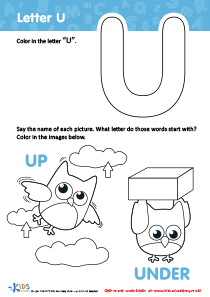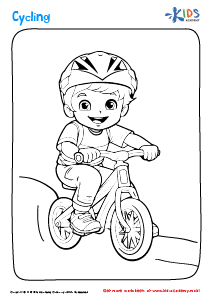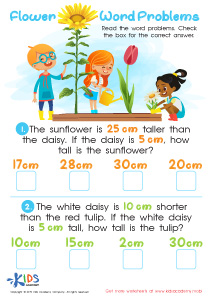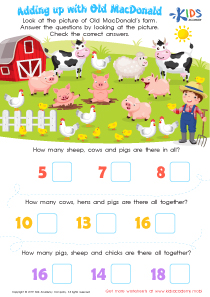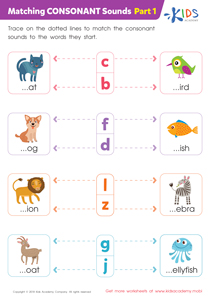Science Lessons | Relationships in ecosystems, Preschool
0 results
Welcome to our Relationships in Ecosystems Lessons for Preschoolers! These interactive lessons aim to introduce children to the fascinating world of ecosystems and the important relationships that exist within them. Through engaging worksheets and educational videos, young learners will discover how animals, plants, and other living organisms rely on each other for survival. The lessons also include assessment quizzes to test their knowledge and provide feedback. With our Relationships in Ecosystems Lessons, preschoolers will become stewards of the environment as they learn to understand and appreciate the interconnectedness of all living things.
Teaching relationship in ecosystem lessons to preschool kids can have a tremendous impact on their overall academic growth. The lessons help young learners understand the connection between living and non-living things in our environment and emphasize the importance of ecosystems in sustaining life on earth.
At a young age, children are naturally curious and are eager to learn about the world around them. The interactive worksheets used in these lessons engage their minds and make the learning process enjoyable. Children learn about the food chain, predator and prey relationships, and symbiotic relationships in the ecosystem. For example, they learn how the plants and animals in a forest ecosystem depend on each other to survive. This knowledge helps them to better understand nature and make sense of their environment.
The educational videos used in these lessons also play a crucial role in helping children understand the concept of relationships in ecosystems. The videos not only illustrate the relationship between different organisms but also provide visuals that help children grasp the concepts faster. Children remember information better when the lessons are presented in both visual and auditory formats.
The assessment quizzes that accompany the lessons help children to evaluate their understanding of the material covered. This helps educators to monitor the progress of each student and identify areas that require additional support. These quizzes also help to reinforce the concept being taught and make it more meaningful to students.
Moreover, learning about relationships in ecosystems also has an impact that goes beyond academics. The lessons encourage children to develop critical thinking and problem-solving skills as they encounter various scenarios in the ecosystem. It teaches them to analyze the relationships between living and non-living things in the environment and understand how different factors can influence these relationships. This skill can prove helpful in all areas of their life and in their future endeavors.
In conclusion, teaching relationships in ecosystems lessons to preschool children has a positive impact on their academic and personal growth. It helps them to understand the connection between living and non-living things in the environment, the importance of maintaining a balance in the ecosystem, and encourages them to develop critical thinking and problem-solving skills. The interactive worksheets, educational videos, and assessment quizzes used in these lessons make learning enjoyable and effective. As a result, these young learners will be able to appreciate nature more, become more environmentally conscious, and develop lifelong learning habits.
